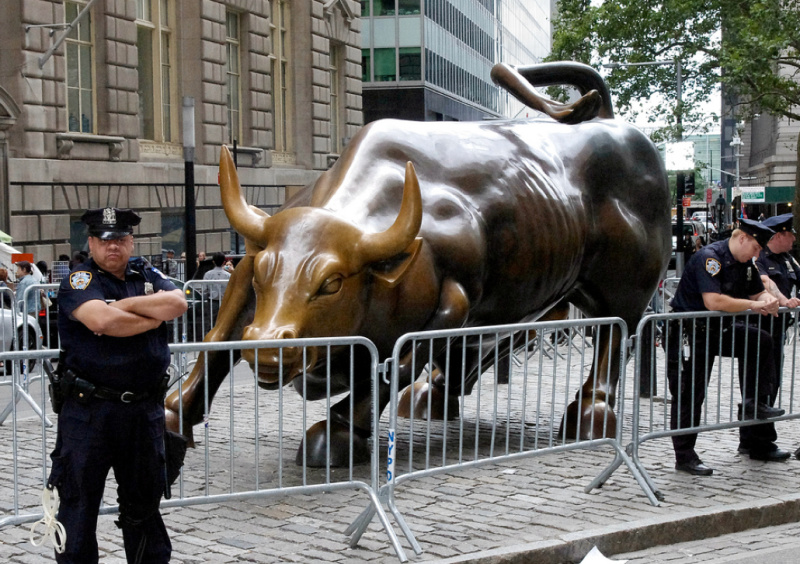At the website of The Baffler, Chris Lehmann looks back at the onset of the Great Recession ten years ago. He recalls how the response of US politicians at the time was wholly inadequate, laying the groundwork for another major financial collapse in the future. He also suggests that the Great Recession gave rise to a novel brand of right-wing politics that would culminate in the election of Donald Trump several years later. Here’s an excerpt:
But again, the C-suite banking class need not have worried. Obama never exacted any serious reforms for the new millennial Money Power, or floated any pledges of future discipline for its masters. Indeed, he assured them that “my administration is the only thing between you and the pitchforks” and if they’d merely consent to the modest brands of stimulus and financial reform his administration would duly draft in consultation with them, why, then the balmy dreams of bipartisan, business-driven financial oversight would gently waft once more into the foreground of D.C. policymaking.
And sure enough, within the generous latitude afforded by the Dodd-Frank overhaul of financial industry rules (still another dishwater reform measure advanced by industry-captive lawmakers), major banks soon returned to minting out shaky subprime debt-instruments while household debt soared once more into the outer ether, in no small part because of the predatory student loan bubble.
But these familiar, dismal trends typically escaped notice of our media sachems and political leaders alike. No, the main story to emerge out of the immediate wake of the 2008 crisis wasn’t anything so dreary as the compromised, donor-driven state of political inquiry or the systemic looting of the country’s dispossessed middle class. It was, rather, the rise of the Tea Party—the Koch-funded, Palin-inebriated scourges of runaway socialism. In much the same way that we’ve forgotten that Rahm Emanuel crafted his thoughts on crisis management for an audience of crisis-generating CEOs we’ve now largely forgotten that the Tea Party rebellion was touched off by a dayside CNBC political commentator named Rick Santelli.
Image via Gawker.
